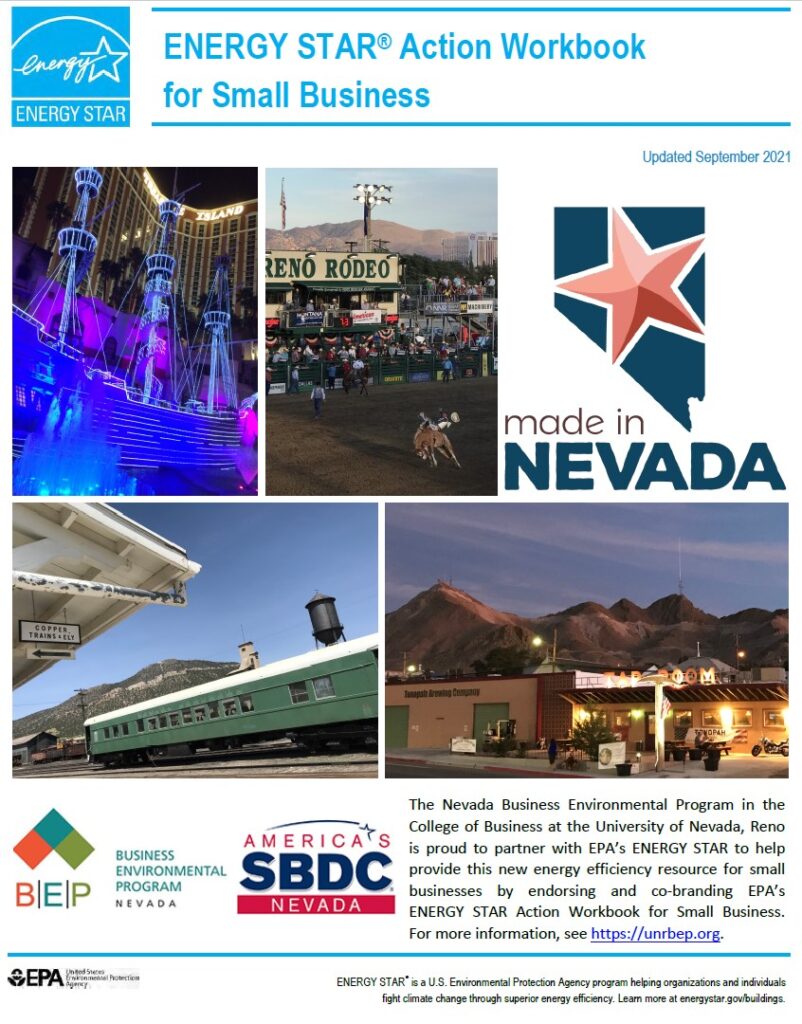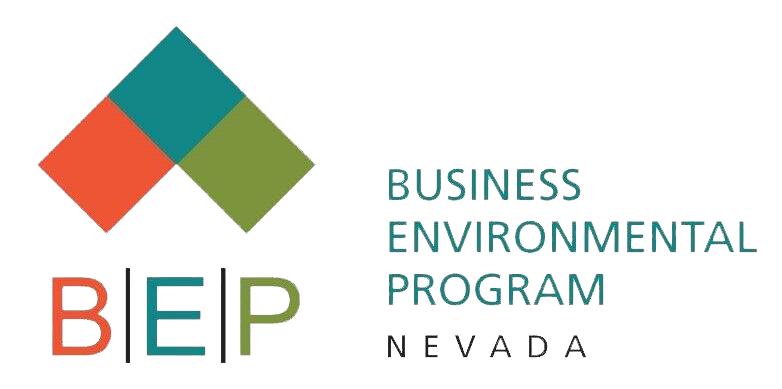Energy efficiency can be an important cost saving opportunity for a business. It is also one of the first sustainability steps a business should take. There are many energy efficiency projects a business can complete to reduce both operating costs and carbon emissions.
BEP is proud to partner with EPA’s Energy Star to help provide this energy efficiency resource for small businesses in Nevada by endorsing and co-branding EPA’s Energy Star Action Workbook for Small Businesses.
Download the workbook now and start saving money on your energy bills!

What are the benefits of energy efficient buildings and workspaces?
- Energy efficient buildings have lower utility bills, lower operating and maintenance costs and use water more efficiently.
- An energy efficient building has lower greenhouse gas emissions from the reduction in energy use. There are also many opportunities in Nevada for businesses to increase their use of renewable energy thereby further reducing greenhouse gas emissions.
- Lighting upgrades and increasing the amount of daylight in workspaces contributes to increased productivity while energy efficiency improvements to HVAC systems can improve air quality and building occupant comfort.
- Improving the energy efficiency of your building has longer term benefits as well. Energy efficient buildings can have increased property market value and increased rental income.
What can we do for you?
The Nevada Business Environmental Program is dedicated to assisting businesses explore energy efficiency opportunities for their facilities and operations. BEP can help evaluate your business and come up with cost effective strategies for you to increase energy efficiency in your building. We are able to:
- Conduct on-site visits to assess opportunities
- Provide technical assistance and suggest projects that make sense
- Connect you with other assistance agencies and utilities that provide expertise and funding for energy efficiency projects
What can you do?
In the industrial sector, examples of energy efficiency projects include:
- Upgrade lighting to LEDs and use motion controls to illuminate areas only when occupied
- Evaluate production equipment for energy saving devices such as variable speed drives
- Evaluate compressed air systems for air leaks that commonly occur in many areas such as hoses, fittings, joints, quick disconnects, valves, and point of use devices.
- Have an energy audit done by your utility company
- Upgrade older equipment to energy efficient models or Energy Star certified equipment
In the commercial sector, energy efficiency projects can include:
- Increasing daylighting in office spaces to increase comfort and reduce use of electricity
- Investing in energy efficient computer hardware, office machines, and other equipment. Look for Energy Star and EPEAT certified equipment.
- Having an energy audit done by your utility company
- Considering using smart thermostats in your office spaces
In homes and schools, examples of energy efficiency practices include:
- Turning off lights and equipment such as computer monitors when not in use
- Investing in energy saving power strips
- Switching to LED light bulbs in overhead lighting and in lamps
- When upgrading appliances, look for the Energy Star symbol to guide product choices
